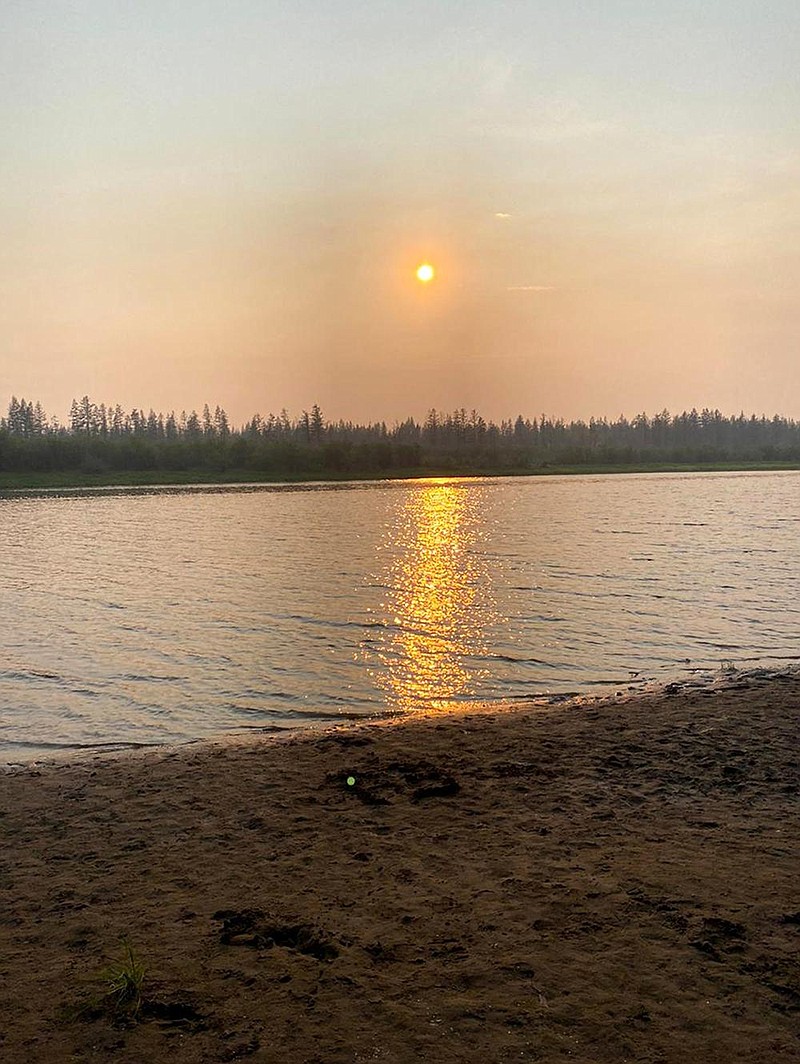MOSCOW -- The Arctic is feverish and on fire -- at least parts of it are. And that's got scientists worried about what it means for the rest of the world.
The thermometer hit a likely record of 100.4 degrees Fahrenheit in the Russian Arctic town of Verkhoyansk on Saturday, a temperature that would be a fever for a person -- but this is Siberia, known for being frozen. The World Meteorological Organization said Tuesday that it's looking to verify the temperature reading, which would be unprecedented for the region north of the Arctic Circle.
"The Arctic is figuratively and literally on fire -- it's warming much faster than we thought it would in response to rising levels of carbon dioxide and other greenhouse gases in the atmosphere, and this warming is leading to a rapid meltdown and increase in wildfires," University of Michigan environmental school dean Jonathan Overpeck, a climate scientist, said in an email.
"The record warming in Siberia is a warning sign of major proportions," Overpeck wrote.
Much of Siberia had high temperatures this year that were beyond unseasonably warm. From January through May, the average temperature in north-central Siberia has been about 14 degrees Fahrenheit above average, according to the climate science non-profit Berkeley Earth.
"That's much, much warmer than it's ever been over that region in that period of time," Berkeley Earth climate scientist Zeke Hausfather said.
For scientists, "alarm bells should be ringing," Overpeck wrote.
Such prolonged Siberian warmth hasn't been seen for thousands of years "and it is another sign that the Arctic amplifies global warming even more than we thought," Overpeck said.
Russia's Arctic regions are among the fastest warming areas in the world.
The temperature on Earth over the past few decades has been growing, on average, by nearly one-third of a degree Fahrenheit every 10 years. But in Russia it increases by 0.85 degrees Fahrenheit -- and in the Russian Arctic, by 1.24 degrees Fahrenheit every decade, said Andrei Kiselyov, the lead scientist at the Moscow-based Voeikov Main Geophysical Observatory.
"In that respect, we're ahead of the whole planet," Kiselyov said.
The increasing temperatures in Siberia have been linked to prolonged wildfires that grow more severe every year and the thawing of the permafrost -- a huge problem because buildings and pipelines are built on them. Thawing permafrost also releases more heat-trapping gas and dries out the soil, which increases wildfires, said Vladimir Romanovsky, who studies permafrost at the University of Alaska Fairbanks.
"In this case it's even more serious, because the previous winter was unusually warm," Romanovsky said. The permafrost thaws, ice melts, the soil subsides and then it can trigger a feedback loop that worsens permafrost thawing and "cold winters can't stop it," Romanovsky said.
Last August, more than 4 million hectares of forests in Siberia were on fire, according to Greenpeace. This year the fires have already started raging much earlier than the usual start in July, said Vladimir Chuprov, director of the project department at Greenpeace Russia.
Persistently warm weather, especially if coupled with wildfires, causes permafrost to thaw faster, which in turn exacerbates global warming by releasing large amounts of methane, a potent greenhouse gas that's 28 times stronger than carbon dioxide, said Katey Walter Anthony, a University of Alaska Fairbanks expert on methane release from frozen Arctic soil.
"Methane escaping from permafrost thaw sites enters the atmosphere and circulates around the globe," she said. "Methane that originates in the Arctic does not stay in the Arctic. It has global ramifications."
And what happens in the Arctic can even warp the weather in the United States and Europe.
According to meteorologists at the Russian weather agency Rosgidromet, a combination of factors -- such as a high pressure system with a clear sky and the sun being very high, extremely long daylight hours and short warm nights -- have contributed to the Siberian temperature spike.
"The ground surface heats up intensively. .... The nights are very warm, the air doesn't have time to cool and continues to heat up for several days," said Marina Makarova, chief meteorologist at Rosgidromet.
Information for this article was contributed by Jim Heintz, Frank Jordans, Jamey Keaten and Roman Kutukov of The Associated Press.






